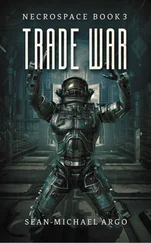‘But why would Constance want to kill Millie?’
‘The police inspector has no idea. He suggested that Constance might have been jealous of the relationship between you and Millie.’
‘It’s not that,’ said Theo.
Conrad was about to question Theo’s denial, but he kept quiet. Theo seemed distracted, as though he was thinking, weighing something up.
There was silence in the attic. The two men were still standing several feet apart, but for the first time Conrad felt closer to Theo, to his friend. He waited.
Eventually Theo spoke. ‘In that letter you wrote to me at the beginning of the war, you reminded me how at Oxford we swore we wouldn’t let anyone make us fight each other as they had made our parents fight last time. How we owed our allegiance to the human race, not to our country. How it seemed so simple then.’
Conrad nodded. He remembered. ‘Algy.’
Algernon Pemberton was the man who had inhabited Conrad’s rooms in 1914 and died at Ypres in 1915. His name was on a wooden plaque on the wall; Conrad and Theo had talked about the doomed undergraduate many times.
‘Then it turned out not to be so simple for either of us,’ Theo went on. ‘You decided to fight for socialism, or at least against Fascism, in Spain. I became involved in trying to rid my country of a madman. You helped me. And now I am fighting for my country and you for yours.’
Conrad wanted to interrupt, to point out that he was fighting as much against Hitler as for Britain, but he kept quiet. He knew what Theo was saying was important to him, and he didn’t want to interrupt his flow.
‘Well, you would think that as a German officer fighting for my country, I would want my country to win this war. But I’m not sure I do. If Germany smashes France, Hitler’s control of power will be total. The only people left who can stand up to Hitler are the generals, and if they achieve a great victory in France, they won’t do it. You can see how success in Poland has gone to their heads. If Hitler maintains his control of Germany, that will be disastrous. A thousand years of darkness.
‘So, as a good German, as a good German officer, as one of those von Hertenbergs who has served his country for generations, I do not want a successful blitzkrieg in the west. Can you understand that?’
‘I can understand that,’ said Conrad.
‘Good,’ said Theo. ‘That’s why I told Millie something when I saw her in Scheveningen. That’s why I told you about Bedaux. Did you look in to him?’
‘I went to Paris. I discovered he has been talking to the Duke of Windsor. I discovered the duke has been inspecting the French lines. I guessed that Bedaux has been telling you about it.’
Theo smiled. ‘Well done. Did you tell your government?’
‘I did,’ said Conrad.
‘Did they listen?’
‘I think so. I’m not sure. The Duke of Windsor is a tricky subject.’
‘All right, then. Let me tell you some more. The duke is no fool, it turns out, at least when it comes to military matters. He has identified a significant weakness in the French line, in the Ardennes around Sedan. He has also made clear that the most powerful French forces have been earmarked to push northwards into north-west Belgium when we invade, which we will do, by the way. Now the German general staff knows these weaknesses, they will be able to alter their plans to take advantage of them.’
‘Bedaux told you all this?’
‘He did. Also…’ Theo hesitated. Conrad waited. ‘Also there are people in the Nazi Party who believe that the Duke of Windsor would make an excellent leader of a British government that was sympathetic to Germany. That he is a man that Germany could do business with.’
‘People? What kind of people?’
‘Ribbentrop. Hitler.’
‘I see. And do you know what the duke thinks about this?’
‘That’s a good question,’ Theo said. ‘The truth is we don’t. According to Ribbentrop, the duchess would like it and the duke does whatever his wife wants. But Ribbentrop is not nearly as astute a judge of the British as he thinks he is. Do you know?’
‘No idea,’ said Conrad. ‘Frankly, it’s hard to believe that a man who was king only a couple of years ago would behave in the way you have described.’
‘Believe it,’ said Theo. ‘And tell your government.’
‘I will,’ said Conrad. He swallowed. The information Theo had just given him would shatter the people who ruled Britain. Van would have to take notice. The government would. So would the present king, George. It seemed so fantastic, could it possibly be true?
Conrad now realized why Theo had taken the time to explain why he was telling him about the duke. To convince him that he was speaking the truth. And Conrad was convinced.
‘Good,’ said Theo. ‘Now you had better be going. You leave first. Don’t look for the professor, just go straight down the stairs and out of the building. I will wait and follow you.’
He held out his hand to Conrad.
Squatting behind a tea chest only three metres from the two men, Neuser had heard and understood every word, since they were fortunately speaking in German. He was astounded. He only hoped he could remember it all.
It was absolutely clear that Hertenberg was a traitor. The slight qualm Neuser had felt when first ordered to kill a fellow officer was gone. Hertenberg had to die. They both had to die.
He was glad he had waited to hear so much of the conversation, but now it was time to move. He risked a peek from behind the chest, and saw the Englishman moving towards his German friend, hand outstretched. Neuser ducked back behind the chest and raised his pistol, ready to act.
Just before Theo shook his outstretched hand, Conrad noticed a flicker of movement in the glass of a framed photograph behind his friend. Then it was gone. In the reflection he could see his own legs and the fuzzy silhouette of the tea chests behind him. Something thin and rounded briefly appeared above the tea chest and then it too was gone.
Was that the barrel of a gun?
Possibly. Possibly not.
He would take no chances.
Theo let go of Conrad’s hand. Conrad had lost track of what Theo was saying.
‘Conrad?’
He had to play for time. Give himself time to think. Toss something to make whoever was behind the tea chest pause and listen.
‘Göring,’ he said.
‘Göring?’ said Theo, puzzled.
In similar situations when dealing with Nazis in Berlin the year before, Conrad had alighted upon Göring as the perfect name to intrigue and confuse them. The fat Luftwaffe chief was one of Hitler’s oldest allies, but he had his own power base and the SS did not trust him.
‘I should have told you before. About Göring.’
‘What about Göring?’
Good question, Theo, Conrad thought. ‘I’ve got a message I need to show you. Van gave it to me in London.’ Conrad put his hand in his jacket pocket. There was nothing there. ‘But we’ll need a little more light.’
It was gloomy in the attic.
‘That’s all right. I’m sure I can read it,’ said Theo, holding out his hand for the non-existent message.
Conrad ignored him and turned away back towards the door and the light switch. He was now facing the tea chests. He couldn’t see any sign of anyone lurking, but that didn’t mean someone wasn’t there.
When he reached the door he yelled: ‘Down, Theo!’ and dived at the tea chests.
There was a cry, and a muffled crack. Conrad found himself on top of the legs of a man holding a pistol with an attached silencer pointing towards Theo. Conrad stretched out and struck the man’s elbow as he pulled the trigger for a second time. Both shots seemed to have missed Theo.
The man struggled to his feet and turned to face Conrad, bringing his gun around in a wide arc. He was short, almost completely bald, broad-shouldered and tough. Conrad dived at him again, hitting him full in the chest, and the gun was sent spinning. The man writhed and wriggled and broke free of Conrad’s grasp. He scrambled to his feet.
Читать дальше












